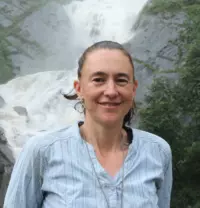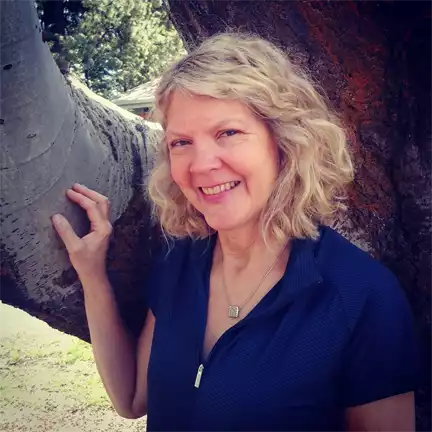About EarthScope ANGLE
The primary aim of the
National Science Foundation-funded EarthScope Alaska Native Geoscience Learning Experience (EarthScope ANGLE) is to increase Alaskan resilience to geohazards through education and building of an action-oriented learning community. A synthesis of existing
EarthScope Program educational materials and methods, translated to an Alaskan setting, will form the core of the programming. The learning community will bring together K-12 teachers, interpreters, emergency management and health & safety educators, and many stakeholders from rural Alaska Native villages, including students, their teachers, and Native Elders.
EarthScope ANGLE educational programing will have two main foci, Educator Professional Development Workshops for formal and informal educators and the Academies for Alaska Native students and their teachers, presented as part of the Alaska Native Science and Engineering Program (ANSEP). To overcome geographic and cultural challenges that Alaska presents, program activities are designed to
1) make connections between the Anchorage School District and smaller school districts throughout the state, and
2) leverage existing programs that support Alaska Native populations, thereby maximizing stakeholder input and participation from remote coastal communities.
ANGLE goals are:
- Synthesize EarthScope educational resources for Alaskan and Alaskan Native context.
- Increase participant knowledge on Alaskan geohazards and EarthScope.
- Develop an informed and action-oriented Alaskan geohazards learning community.
The ANGLE program is building on successes from a similar program run in Washington and Oregon, where similar natural hazards are present. See also Cascadia EarthScope Earthquake and Tsunami Education Program.
Contact ANGLE »
The project is funded by the National Science Foundation's EarthScope Program (NSF-1736021, 1736112, 1735954). Collaborating institutions are
Alaska Pacific University,
University of Alaska Anchorage, and
Central Washington University. Primary supporting institutions are the
Science Education Resource Center and
National Association of Geoscience Teachers. Read about our many other partners on
Partner Network page.
Who we are
Jennifer Pickering is the Science Curriculum Coordinator for the
Anchorage School District, Affiliate Faculty at
Alaska Pacific University (APU), and Project Director of EarthScope ANGLE. With a background that spans the gap between scientific research and K-12 education, Pickering has taught geology courses at both the high school and college level. She has experience with teacher preparation, curriculum alignment and assessment, and has been involved with a number of inter-agency affiliations tasked with improving science outcomes. She served on the Teacher's Advisory Board for the
Hatfield Marine Science Center and the
Oregon Coast Aquarium, and participated in the
Oregon Coast Aquatic and Marine Science Partnership, a 3-year U.S. Department of Education Math and Science Grant designed to improve science instruction through collaboration between educators and science institutions. She is an instructor for both the educator workshops and the ANSEP Middle School Academies. Pickering is the ANGLE Principal Investigator for APU.
Beth Pratt-Sitaula is a Research Associate at
Central Washington University (CWU) and Project Manager at
EarthScope Consortium (formerly UNAVCO), NSF's Geodetic Facility. She has extensive experience with the EarthScope Program, geohazard education, and educational assessment. She was Co-Director of the EarthScope-funded projects
Teachers on the Leading Edge (TOTLE) and
Cascadia EarthScope Earthquake and Tsunami Education Program (CEETEP). For EarthScope Consortium she oversees undergraduate educational resources including the
GETSI Project (GEodesy Tools for Societal Issues), which develops undergraduate curriculum featuring geodesy data applied to critical societal challenges and includes a variety of resources using EarthScope GPS data from the
Network of the Americas (NOTA). She served on the EarthScope Program Speakers Series in 2017-18 and was on the EarthScope Program Education and Outreach Advisory Committee. Pratt-Sitaula spent three summers in Alaska as a natural history guide. She serves as the Assistant Project Director, Educator Workshop assistant instructor, and Assessment Coordinator. Pratt-Sitaula is the ANGLE Principal Investigator for CWU.
Beth Spangler, National Partnership Director,
ANSEP,
UAA. Spangler's position at ANSEP has been supported since 2008 by the
United States Fish and Wildlife Service,
United States Geological Survey (USGS), and most recently, the
National Park Service. Responsibilities include supporting all ANSEP science components from middle school through high school and university components. She will serve as the primary liaison between ANSEP and ANGLE with the Middle School Academy and Career Explorations.
Robert Butler, Professor Emeritus of Environmental Studies at the
University of Portland, was Co- Director and lead geoscience instructor for the EarthScope-funded
TOTLE and
CEETEP projects. Butler has served on the
Incorporated Research Institutions for Seismology Education and Public Outreach (IRIS EPO) Standing Committee, has been co-author of
IRIS Recent Earthquakes Teachable Moments since 2009, and worked with IRIS EPO to develop online teacher professional development courses. He has helped develop numerous IRIS seismology and plate tectonics animations, including animations about the
Alaska 1964 Earthquake and
Alaska Tectonics and Earthquakes. Butler will work with Principal Investigators and Master Teachers to adapt instructional materials and teaching methods to Alaska. He is also assisting with development of the ANGLE educator resource "kit" and serving as instructor for the Year 1 ANGLE Educator Workshop.
Bonnie Magura was middle school science teacher in
Portland Public Schools from 1990 to 2010, the
Oregon Science Teachers Association 1992 Outstanding Teacher and
National Science Foundation's 2003 Presidential Award winner for Excellence in Science and Mathematics Teaching. She served as a Master Teacher for both
TOTLE and
CEETEP, helping develop and test classroom activities and providing a critical realistic classroom perspective during workshops. In ANGLE Year 1 she will aid in the transfer of existing EarthScope educational resources to the Alaska context.
Robert de Groot is the
USGS Coordinator for Communication, Education, Outreach, and Technical Engagement for the
ShakeAlert Earthquake Early Warning System. Prior to joining the USGS he worked for
Southern California Earthquake Center as the manager of the Office of Experiential Learning and was heavily involved in initiating the
Great ShakeOut Earthquake Drill and
Quake Catcher Network (QCN). He will serve as the primary trainer and technical consultant for integration of QCN into ANGLE.
Michael Coe , President of
Cedar Lake Research Group, is the external evaluator and assessment advisor for ANGLE. He is a research psychologist with more than 20 years of experience in social and educational research, program and project evaluation, and psychological and educational assessment. Prior to founding Cedar Lake Research Group, Michael served as Director of Research in the Center for Research, Evaluation, and Assessment at
Education Northwest from 2003 to 2010. His work in the Pacific Northwest has included numerous research and evaluation studies in Alaska as well as providing educational technology workshops for Alaska educators and administrators, and similar work in Montana, Idaho, Washington and Oregon. He has traveled extensively in rural Alaska, conducting site visits and interviews in coastal and inland villages, and will help adapt the
CEETEP research and evaluation model for use in Alaskan cultural and professional settings.







